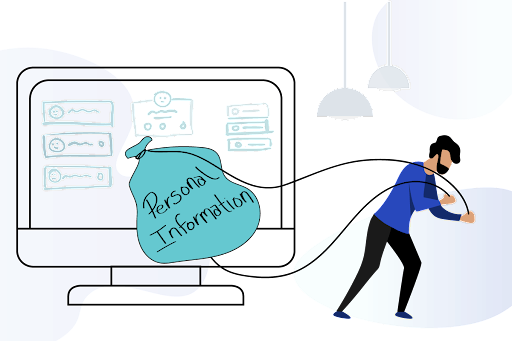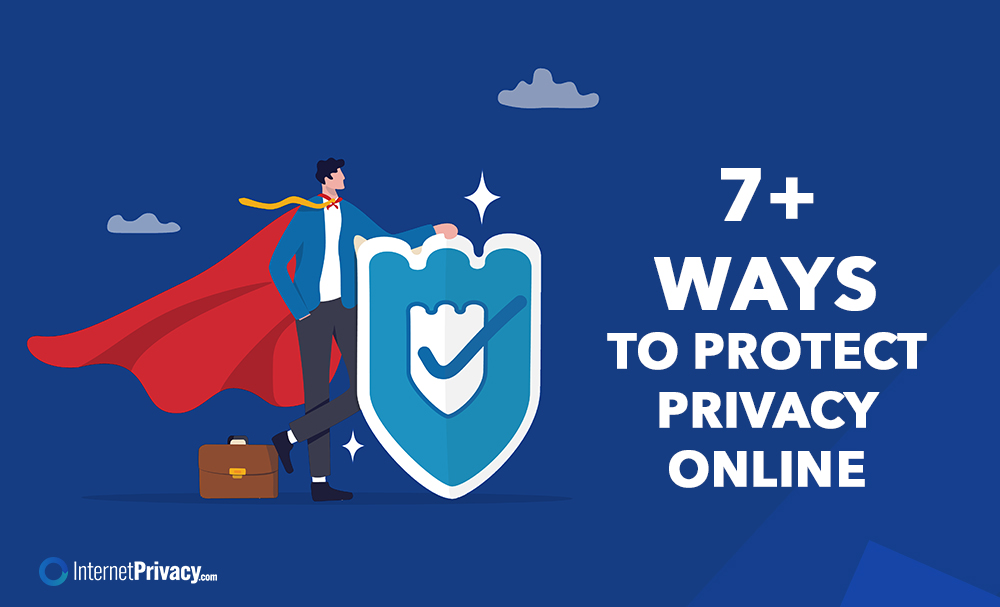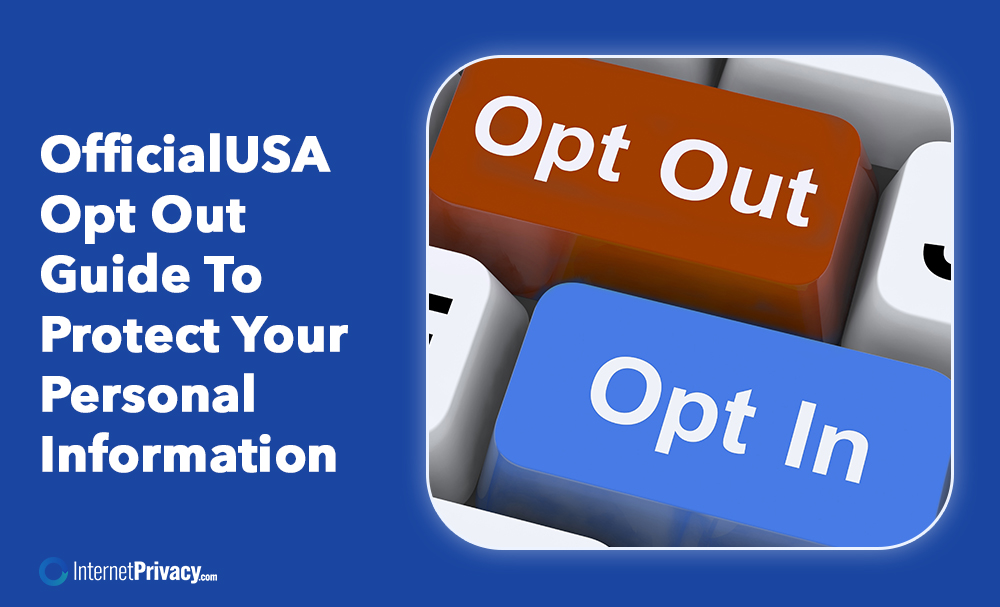Opting Out Of Whitepages: The Ultimate Guide To Protecting Your Privacy

Whitepages is an online directory service that provides users with information about people and businesses. As a result, it can potentially have a significant impact on the privacy of individuals. The purpose of this guide is to provide an overview of the steps and considerations necessary for opting out of Whitepages.
The guide will cover topics such as understanding the impact of Whitepages on privacy, preparing to opt-out, a step-by-step guide to the opt-out process, and maintaining the privacy and monitoring one’s online presence post-opt-out. By the end of this guide, readers will have the knowledge and resources necessary to protect their privacy by opting out of Whitepages.
Opting out of Whitepages is a process that requires both technical skill and vigilance. It is important to consider the implications of opting out of Whitepages, as well as any potential consequences that may arise.
The guide will provide a comprehensive overview of the opt-out process and how to protect privacy post-opt-out. It is important to note that opting out of Whitepages does not guarantee complete privacy, but it can be a step towards protecting one’s personal information.
– To learn more about how to remove yourself from Whitepages and other sites, let’s check these articles:
How to Remove Yourself From WhitePages Forever
Your Complete Guide on How to Remove Items from LexisNexis
Three Surefire Steps To Complete Your Whitepages Opt Out
Understanding Whitepages and Their Impact on Your Privacy
Whitepages is a widely used online directory service that allows users to search for information about individuals. It collects and maintains data about people from public records and other sources such as phone companies, utility companies, and other organizations.
Potential privacy concerns associated with Whitepages listings include the potential for personal information to be used for marketing or other purposes and the potential for identity theft. As such, it is important to understand the implications of using Whitepages and to take steps to protect one’s privacy, such as opting out of Whitepages.
What is Whitepages and How Does It Collect Your Information?
Originally established in 1997, Whitepages is an online directory that collects and provides information on individuals and businesses. It is a powerful and popular platform for finding and verifying contact information, which millions of people and businesses worldwide use.
Whitepages utilizes various sources to compile an extensive database of contact and identity information, including:
- Public Records
- User-contributed data
- Social media profiles
- Business websites
Whitepages’ contact information database is available to its customers through several products, including its online directory, background check services, and app. It is important for users to understand how Whitepages collects and uses their data, as this information can be used to create a comprehensive digital profile of individuals and businesses.
As such, users should be aware of the potential impacts of having their data collected and used by Whitepages.
Potential Privacy Concerns Related to Whitepages Listings
Given its ability to compile an extensive database of contact and identity information, it is important to consider the potential privacy concerns related to Whitepages listings.
One of the primary concerns with Whitepages listings is their accessibility. Whitepages allow anyone to access and view any individual’s personal information with a listed phone number without their consent. This includes names, addresses, and other listed personal information. This means that any individual can access this information, leading to various possible privacy violations.
Another privacy concern with Whitepages listings is the potential for data to be used maliciously. Whitepages data can be used to perpetrate scams, identity theft, and other forms of fraud. Additionally, Whitepages data can be used to track individuals, which can lead to stalking or other forms of harassment.
Furthermore, Whitepages data can be sold to third parties for commercial purposes, leading to unsolicited emails, phone calls, and other forms of communication.
Preparing to Opt Out: Gathering Necessary Information
To opt out of Whitepages, it is important to take the time to identify any listings associated with your name and to collect the necessary personal information required for the opt-out process.
Whitepages listings can be identified by searching for your name on the Whitepages website. Once the listings have been identified, collecting information such as name, address, phone number, and email address associated with them is important.
This information is necessary in order to complete the opt-out process successfully.
Identifying Your Whitepages Listings
Analyzing your Whitepages listings is the first step to understanding your privacy rights and opting out of the directory. It is important to know which listings you have and the information included in them. This will ensure you know what information is available to the public and what you need to remove or opt out of.
To identify your Whitepages listings, it is best to start by searching your name and contact information in the Whitepages directory. This will allow you to view any listings associated with you. You can also conduct a reverse address search to see if any of your past or current addresses are listed in the directory.
Additionally, you can use the Whitepages opt-out page to view all of your listings in one place. This will enable you to identify which listings you want to remove or keep easily. Once you have identified your listings, you can take the necessary steps to remove or opt out of them.
Collecting Required Personal Information for the Opt-out Process
To complete the opt-out process, collecting personal information about the individual seeking to opt out of their Whitepages listing is necessary. This information includes the individual’s name, address, and phone number, which is used to verify that the individual owns the listing.
Additionally, the individual must provide their email address, which is used to confirm the opt-out request. Finally, the individual must also provide a valid photo ID, such as a driver’s license or passport, to confirm their identity.
To ensure the security of the individual’s personal information, Whitepages requires that the individual submit their opt-out request through a secure, encrypted form for data protection. Furthermore, the personal information collected is only used for the purpose of verifying the individual’s identity and is not shared with any third-party sources.
By providing the necessary information and following these safety measures, the individual can successfully opt out of their Whitepages listing.
The Whitepages Opt-out Process: Step-by-Step Guide
The Whitepages Opt-out Process is a step-by-step guide for those who wish to remove their personal information from Whitepages. This guide outlines the necessary steps of how to submit an opt-out request to Whitepages and provides an overview of timelines and expectations for Whitepages listing removal.
Understanding the opt-out process is important in order to ensure that personal information is removed from Whitepages in a timely and efficient manner.
How to Submit an Opt-out Request to Whitepages
Submitting an opt-out request to Whitepages is essential in asserting control over one’s personal information. This process involves a few simple steps that must be completed to remove one’s information from Whitepages successfully.
The steps are outlined below:
- Visit the Whitepages Opt-out Page
- Enter the information you would like to opt out of Whitepages
- Submit the opt-out request
Once the opt-out request has been submitted, Whitepages will review the request and remove the information within 48 hours.
It is important to note that opting out of Whitepages does not remove one’s information from all public directories – opting out of each directory is necessary to ensure that one’s personal information is removed and protected from public access.
Timelines and Expectations for Whitepages Listing Removal
Once a suppression request has been submitted to Whitepages, it is important to consider the expected timelines and expectations for removing a listing. Whitepages typically process suppression requests within four to six weeks of receiving them, though the exact timeline may vary depending on the individual case.
During this time, Whitepages verifies the accuracy of the information included in the request, ensuring that the individual making the request is the same person associated with the listing in question. Once the request is approved, the listing should be removed from Whitepages’ online directory within one to two business days.
However, it is important to note that Whitepages does not guarantee that all requests will be successfully approved or that the listing will be fully removed. Additionally, Whitepages does not guarantee that the listing will be removed from search engine results, as these are outside of Whitepages’ control.
As such, it is important to know the timeline and expectations for Whitepages listing removal to understand the process better and ensure that the listing is removed properly.
Maintaining Privacy and Monitoring Your Online Presence Post-Opt-Out
Once you have opted out of Whitepages, it’s important to maintain your privacy and monitor your online presence.
Regularly check Whitepages and other people’s search sites for any changes in your personal information.
Additionally, it is recommended that additional measures be taken to protect your personal information online, such as using two-factor authentication and creating unique passwords for each account.
Regularly Check Whitepages and other People’s Search Sites
Regularly monitoring Whitepages and other people’s search sites is important in protecting your privacy. It ensures that any information that is posted about you is up-to-date and accurate and that no unauthorized user has access to your data. To ensure your information is secure, you should check the listings on Whitepages and other people’s search sites at least once a month.
In addition to regularly checking Whitepages and other people’s search sites, there are other steps you can take to protect your privacy. You can opt out of Whitepages and other people’s search sites, delete your information from those sites, and even create a profile on Whitepages to control the information listed about you. Taking these measures will help protect your personal information and maintain your online privacy.
Additional Privacy Measures to Protect Your Personal Information Online
By taking additional measures, you can ensure that your personal information is kept secure and private in the online world. It is important to understand the ways in which personal information can be shared without permission and how to protect yourself from these risks.
The following steps can be taken to increase online privacy:
- Set up two-factor authentication: Two-factor authentication adds an extra layer of security to online accounts, making them harder to access without permission.
- Use a VPN: A virtual private network (VPN) adds an extra layer of anonymity to online activities, such as browsing the internet, streaming content, or downloading files.
- Be mindful of data collection practices: Be aware of any data collection practices used by websites or apps, and make sure to read the privacy policy before signing up.
- Use secure passwords: Secure passwords help to protect personal information from unauthorized access. Use a combination of letters, numbers, and symbols to create a strong password whenever possible.
By following these steps, users can increase their online privacy and protect their personal information from unauthorized access.
Conclusion
When opting out of Whitepages, it is important to maintain vigilance over one’s online presence. This includes regularly monitoring for new listings on Whitepages and other similar sites.
Additionally, one should take measures to protect their privacy, such as using strong passwords and using two-factor authentication whenever possible. By taking these steps, one can enjoy the peace of mind that comes with knowing their personal information is no longer available to the public.
Opting out of Whitepages is a powerful tool in the fight for online privacy. Through careful preparation and the use of the opt-out process, individuals can reclaim control over their personal information and protect their privacy.





